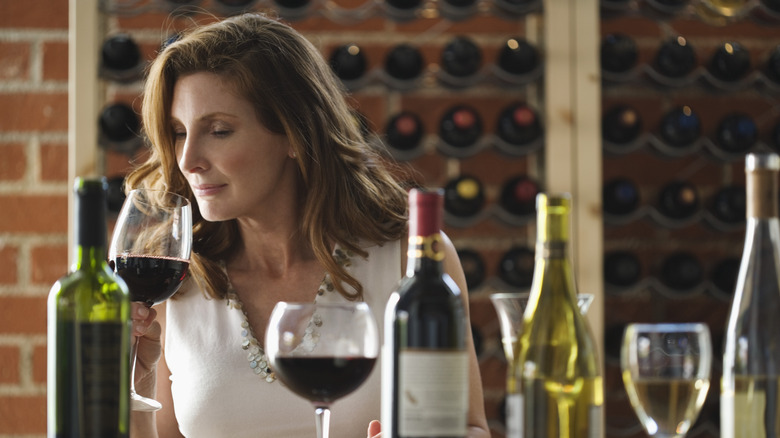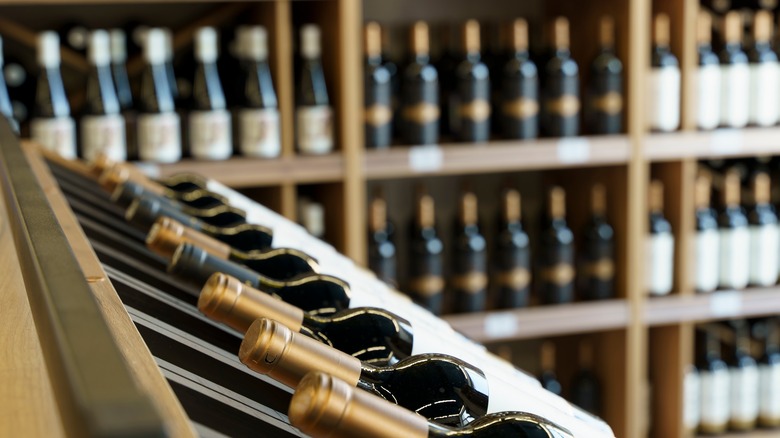Why A More Expensive Wine Won't Necessarily Taste Better To You
There's no shame in admitting you've perused a restaurant's wine list, opting for the most expensive glass to impress a date. Or perhaps you've headed to a dinner party with a bottled gift that you or the liquor shop owner deemed was within an acceptable price range. Even wine connoisseurs fall prey to the price point paradox. The more expensive the bottle of vino, the more sophisticated the grape juice, correct?
A few factors determine the price point of a bottle of bold red or crisp white: The wine region, vineyard, and quality of grape; what the wine was fermented in and whether or not it involved oak; and how long the wine was aged.
The perfect storm of what's in the bottle and what you think is in it makes relying on the sticker price alone a precarious move. Your brain might trick you into thinking the wine tastes better if you happened to have spent more money on it. So why won't the pricier bottle of wine necessarily taste better to you? The answer is two-fold.
Price is not always indicative of quality
If you're a novice in the wine world browsing the daunting aisles of stacked reds and whites, your eyes probably first go to the label and the sticker on the shelf. While it's tempting to pick a price tag, pretty illustration, or catchy name, assuming the liquid inside will follow suit is risky. It's worth remembering wine is an industry-selling product that entails branding and marketing.
A study published in the Journal of Wine Economics in 2008 concluded a lack of correlation between the overall rating of a bottle of wine and its price. In other words, a higher price does not always equal a higher quality wine.
Much like it's imprudent to judge a book by its cover, choosing a bottle of wine based on its price is ill-advised (though, by all means, go for that cool label if that's your jam).
Your palate may not be up to par
This one might hurt the ego a bit, but if you're not a sommelier or anywhere near that realm, you may be unable to detect the subtle nuances separating good from a great wine. Often, the higher the price point on that bottle, the more intricate those nuances will be. Your palate may not be a fan if you're an amateur imbiber.
Moreover, inexpensive wine usually has more residual sugar to compensate for the lower-quality grapes. Since sugar makes just about anything taste better, you're probably used to the sweeter taste if you're not a habitual or finicky wine drinker. A more expensive wine without that higher residual sugar content may come across as bitter or boring to your taste buds.
When all is said and done, fill your glass with what tastes good to you and whatever your bank account is game for.


